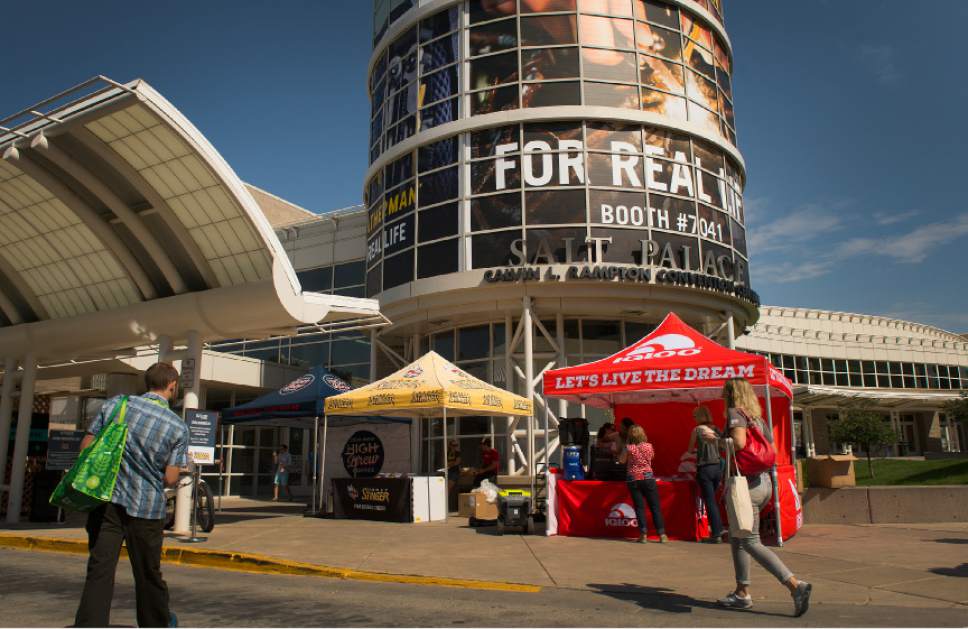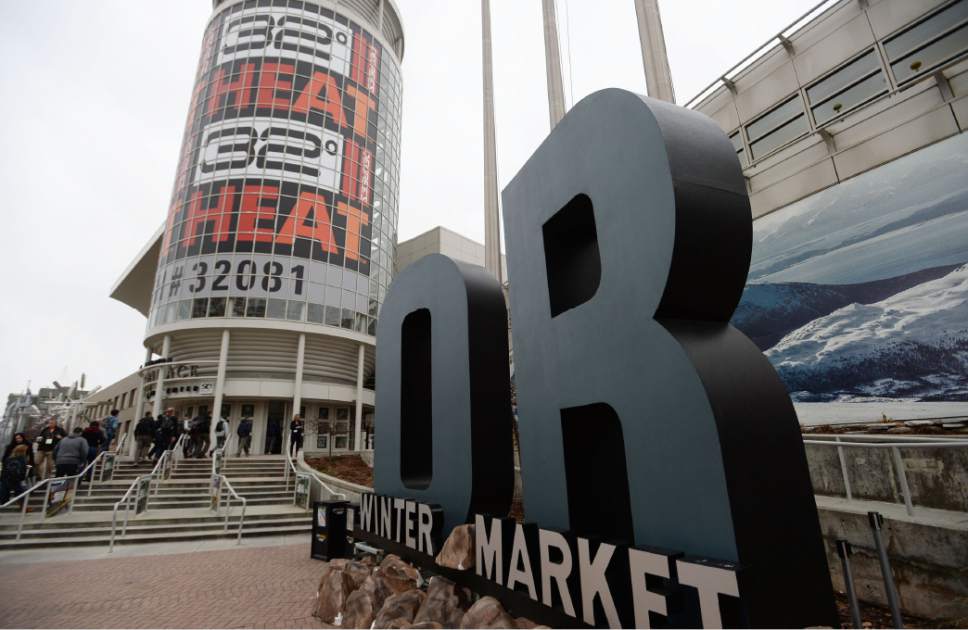This is an archived article that was published on sltrib.com in 2017, and information in the article may be outdated. It is provided only for personal research purposes and may not be reprinted.
Critics exceed fans of the state's handling of the Outdoor Retailer showdown, which ended with recreation-industry leaders deciding the lucrative trade expos will leave Salt Lake City due to Utah officialdom's public-lands policies and efforts to undo Bears Ears National Monument.
A Salt Lake Tribune-Hinckley Institute of Politics poll showed 34 percent of registered voters evaluated the state's response to Outdoor Retailer complaints as excellent or good, while 23 percent rated it as fair and 31 percent found it poor.
Dan Jones & Associates conducted the survey March 15-21, a month after Emerald Expositions, owner of the twice-yearly trade exhibitions that bring 40,000 visitors and $45 million to the economy each year, said it would not include Utah in requests for proposals to host future shows.
That decision was made after the Outdoor Industry Association and leaders of several large recreation-oriented companies — including Black Diamond Equipment founder Peter Metcalf — became disenchanted with the lack of response they received to concerns about state efforts to take ownership of public lands from the federal government and to overturn then-President Barack Obama's monument designation in southeastern Utah.
The poll was among 605 registered voters statewide and had a margin of error of plus or minus 3.98 percentage points.
Gov. Gary Herbert's spokesman Paul Edwards said "this was not a win/win for either party so it's not surprising that people throughout the state are as disappointed as we are that we didn't get to what would have been the best outcome — for the Outdoor Retailer show to stay here."
He maintained the dispute "overemphasized a few differences and minimized the significant overlap of interests and ideals that both the state and the OIA share for strong recreation opportunities in the state and the preservation of our archaeological and natural resources."
But Amy Roberts, executive director of the Outdoor Industry Association, said the results "reinforce that the majority of Utahns feel strongly about public lands and believe that their elected officials should make decisions that invest in the outdoor recreation economy."
She believes their interests are worth listening to. "The recreation economy currently contributes $12 billion in consumer spending, 122,000 jobs, $3.6 billion in wages and salaries and $856 million in state and local tax revenue to the state."
While Republicans were more supportive of the state's efforts, with 45 percent rating its performance as good or excellent, dissension did show in the GOP ranks. Fifteen percent judged Utah's response as poor and 28 percent as fair.
Democrats and unaffiliated voters were decidedly unimpressed, with 75 percent of Democrats giving the state a poor rating while 60 percent of those belonging to neither party put it at fair or poor.
Outside of older, wealthier, active members of The Church of Jesus Christ of Latter-day Saints — who gave the governor, Legislature and congressional delegation the highest nods of approval — almost every other categorical breakdown reflected more disapproval than satisfaction.
Nearly a third of men and women labeled the state's response as poor, while more than half (54 percent) of younger respondents, ages 18 to 24, gave Utah officials the lowest mark on the issue.
Edwards said state officials hold out hope that Emerald Expositions will reconsider and offer Utah the chance to bid for future shows. The Legislature signaled its interest, too, reinstating a $1 million incentive in next year's budget.
"We are hopeful we're doing everything we can to keep the door open for ongoing discussions with OIA because we feel it's been a productive and mutually beneficial relationship for 20 years," he said, adding "we aren't overly optimistic that the show will be able to stay, given what's transpired."
Don't count on the convention's return, said OIA's Roberts.
"Nothing has changed," she said. "Despite losing Outdoor Retailer, the Utah congressional delegation continues to be very vocal in their efforts to transfer lands to the states and to rescind monument designations."





